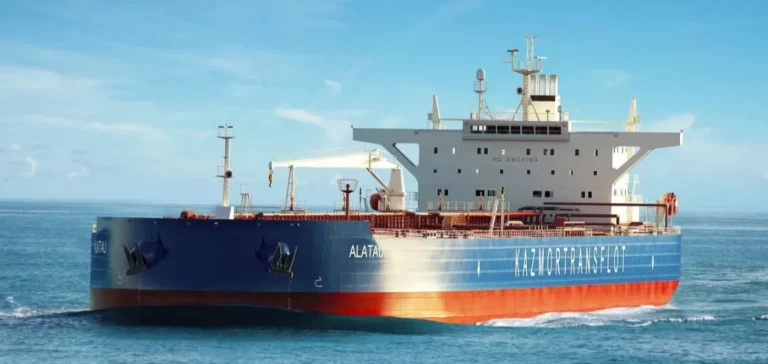Kazakhstan has reached a new milestone in its oil export strategy by shipping for the first time a batch of 85,000 tonnes of crude oil to Hungary. The transport was carried out by Kazmortransflot, a subsidiary of KazMunayGas, aboard the Alatau tanker between the Russian port of Novorossiysk and the Croatian port of Omisalj. This operation is part of the ongoing commercial relationship between KazMunayGas and MOL Group, a major refiner in Hungary.
A new oil logistics corridor
The delivery opens a new logistics corridor linking Kazakhstan to European Union markets. By bypassing certain traditional routes, KazMunayGas aims to strengthen the resilience and diversification of its exports. The agreement between KazMunayGas and MOL Group calls for increased flows of Kazakh crude to the Hungarian refinery, positioning Kazakhstan’s oil as an alternative source for the Central European energy sector.
The use of Omisalj port in Croatia as a logistics entry point represents a significant change in export routes. Kazmortransflot, the national carrier, handled the first shipment across the Black Sea and the Adriatic, allowing access to new outlets in Europe. The company stated that this approach reinforces Kazakhstan’s presence in European oil markets and promotes greater cooperation between regional players.
Strengthened regional energy cooperation
Industry players view this shipment as a milestone in diversifying hydrocarbon export routes. According to KazMunayGas, the success of this operation demonstrates the company’s ability to adapt its logistics strategies in response to market demands and partner requirements. The company also highlights the importance of this partnership in expanding the commercial reach of Kazakh crude oil within the European Union.
This development comes at a time when Central and Eastern Europe are seeking new energy supply sources. Maritime transport from Novorossiysk to Omisalj now allows Hungary direct access to Kazakh oil via the Adriatic, reducing reliance on traditional routes and offering new perspectives for regional integration.






















